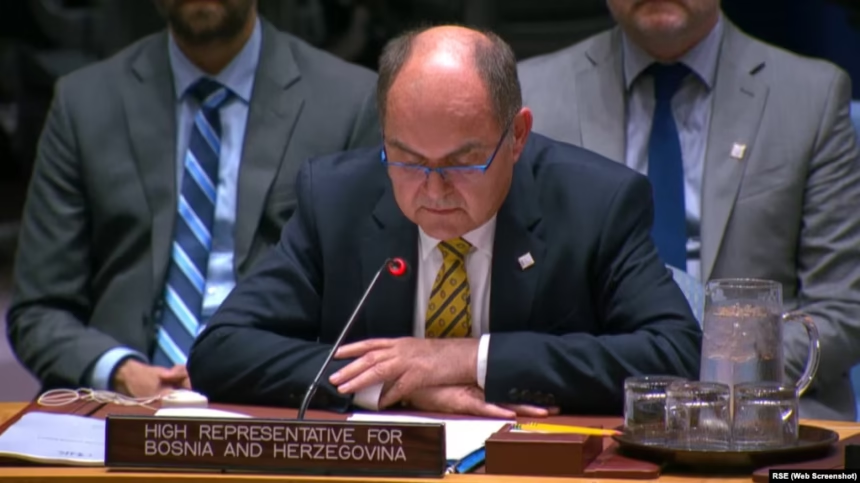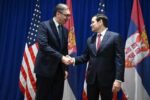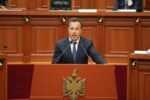At the United Nations Security Council, High Representative Christian Schmidt declared that Bosnia and Herzegovina is experiencing its most severe political crisis since the 1995 Dayton Peace Agreement. Though he ruled out the threat of war, Schmidt stressed that political destabilization, particularly from Republika Srpska, is pushing the country to the brink.
🔹 “Bosnia is in a political—not security—crisis, and there’s no risk of war. However, the Dayton framework has never been in deeper jeopardy,” said Schmidt in his semiannual report to the UN.
Dodík’s Verdict and De Facto Secession
Schmidt attributed the worsening situation to the first-instance court verdict against Republika Srpska President Milorad Dodik, which authorities in the Serb entity used as justification for separatist actions. This includes an ongoing initiative to draft a new constitution for Republika Srpska—seen by many as a clear step toward de facto secession.
🔹 “This is the culmination of long-standing policies I have warned about in previous reports,” Schmidt stated.
He noted mild improvements in the economy, but warned that Bosnia faces a profound demographic crisis. Still, Schmidt emphasized that the Dayton Agreement remains the foundation for Bosnia’s future, though he acknowledged the need for potential constitutional amendments.
🔹 “Thirty years after the war, few expected the international community would still be so necessary,” he added.
Call to Action for Leaders and the International Community
In closing, Schmidt called on Bosnian leaders to continue pursuing European integration, and urged the international community not to abandon the Bosnian people.
Meanwhile, Željka Cvijanović, Chairwoman of Bosnia’s Presidency and a representative of Republika Srpska, denied accusations of undermining Dayton. She claimed the Serb entity supports the agreement—but in its original form—and defended recent controversial laws passed by Republika Srpska as “legitimate responses to international legal violations.”
She also questioned Schmidt’s legitimacy and called on the Security Council to either confirm his mandate or appoint someone else.
U.S. and UK Support Bosnia’s Sovereignty
U.S. representative John Kelley reaffirmed Washington’s strong support for Bosnia’s sovereignty, territorial integrity, and multiethnic character, condemning any rhetoric or actions that might incite instability or violence.
🔹 “The U.S. opposes all secessionist efforts and supports continued international presence through EUFOR Althea,” Kelley said.
Russia and the Threat of Unitarism
By contrast, Russia’s envoy Vasily Nebenzya accused the international community of trying to reshape Bosnia into a unitary state, and labeled the court case against Dodik a provocation—echoing the Serb entity’s narrative.
UK: Dodik Is the Main Threat
UK Special Envoy Karen Pierce warned that Milorad Dodik remains the single greatest threat to Bosnia’s sovereignty.
Conclusion:
Christian Schmidt’s address before the UN makes it abundantly clear: Bosnia and Herzegovina stands at a dangerous political crossroads. While the threat of armed conflict may be low, the fabric of the Dayton Agreement is under increasing strain, especially as Republika Srpska pushes for constitutional independence. As Western powers reaffirm their support, the future of Bosnia depends on unity, diplomacy, and sustained international engagement.







